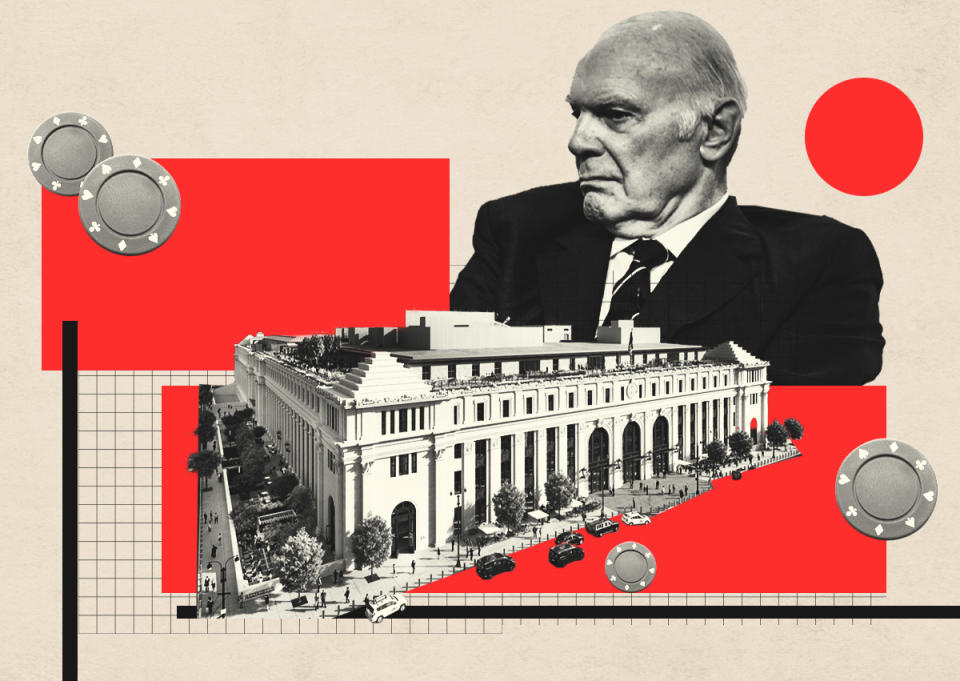Vornado likely ditching casino plan

Steven Roth’s Vornado Realty Trust is leaving the crowded table of developers seeking to build a casino in New York.
Earlier this year the firm expressed interest in winning one of the three downstate casino licenses from the state, but on Tuesday, Roth said on an earnings call that it “is highly likely that we will not pursue a casino license.”
The real estate investment trust had been betting on the former Hotel Pennsylvania site across from Madison Square Garden. But the competition for a casino license is heavy, and existing racinos have the inside track on two of the three licenses to be granted.
The usually succinct Roth did not go into details, and analysts on the call did not ask any more questions.
Vornado, a major office owner in New York City and developer of the world’s most profitable condominium, 220 Central Park South, reported mixed results for the third quarter. Net income increased to $52.8 million from $7.7 million in last year’s third quarter. Most of the increase was driven by one-offs including a gain on the fair value of its Sunset Pier 94 joint venture with Blackstone and the sale of The Armory Show.
Funds from operations fell to $119.5 million, or 62 cents per diluted share, from $152.5 million, or 79 cents per diluted share, from the prior year’s quarter. The decrease was partly driven by higher interest rates.
Vornado’s New York office leasing fared better than last year. In the third quarter, Vornado reported leasing 236,000 square feet with an initial rent of $93.33 per square foot, up from 167,000 square feet and $88.99 per square foot a year ago.
Roth noted that financing is becoming increasingly difficult to obtain.
“Capital is scarce and back-breakingly expensive,” said Roth. “While the circumstances will cause pain in the short term, they lay the foundation for a recovery and fundamentals and values in the future.”
The lack of financing and higher interests is leading developers to hold off on new construction, Roth said.
“If history is our guide, as demand recovers the market will tighten and Class A rents and values will benefit enormously,” said Roth. “We have seen this movie before.”
The proliferation of remote work, however, is new, and the prevailing sentiment is that it is here to stay. Yet Roth has not come around to that view.
“I can’t imagine millions of American office workers working alone at their kitchen tables,” he said.
This summer, Roth said Vornado would not build new office towers near Penn Station. The state had planned to use payments from Vornado to help cover some of the costs tied to improvements of Penn Station. As a result, New York Gov. Kathryn Hochul said the state is “decoupling” the station’s redesign from Vornado’s office developments.
When one analyst asked whether politics have changed around commercial real estate development, Roth chose not to discuss the Penn Plaza proposal.
“Times today are not very different at all from what they have been in the last decade,” said Roth. “The growth of the cities in the U.S. has always been fairly aggressive. Most cities want to grow. New York City is in that category.”
